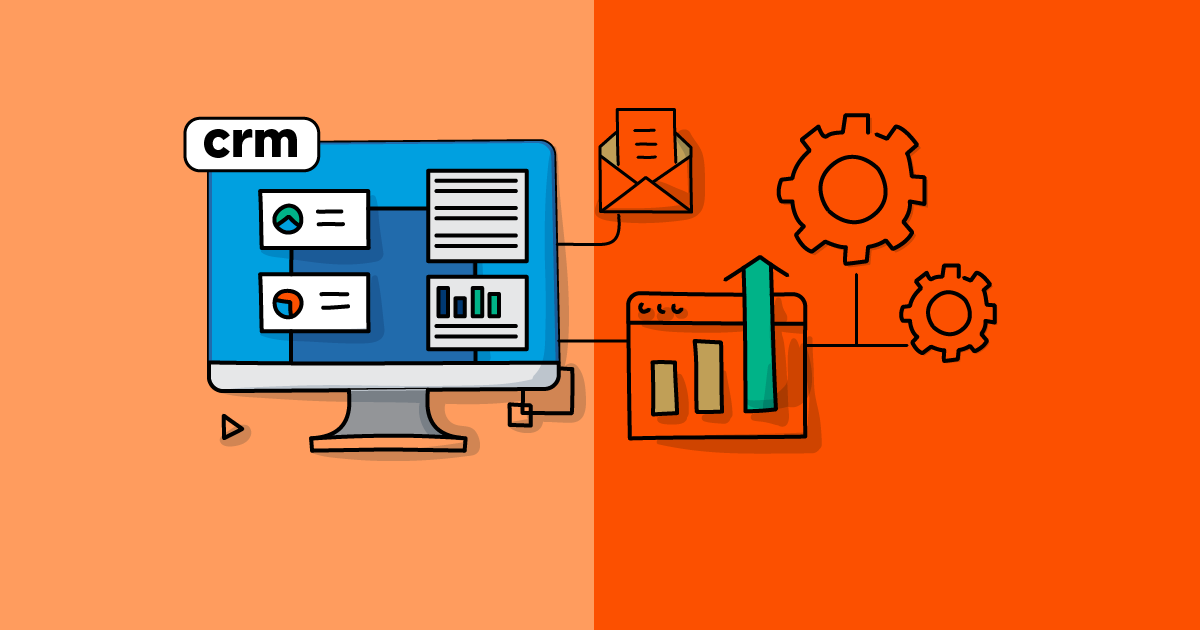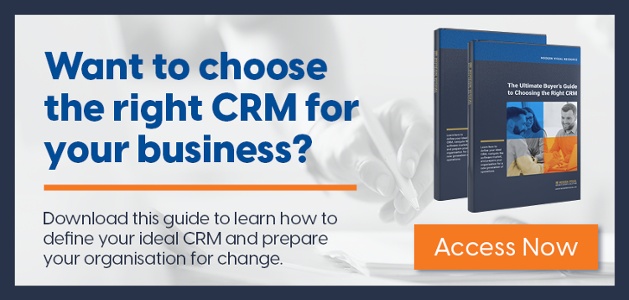
Will switching CRMs actually boost my revenue?
The promise of increased revenue is a powerful motivator for businesses considering a CRM switch. But does it always deliver? The short answer is: it depends. While a new CRM can be a catalyst for growth, it's not a magic bullet. To truly see a boost in revenue, you need a strategic approach and realistic expectations.
So, can a CRM switch drive revenue growth?
Absolutely. But it's essential to understand how.

![]()
"A well-executed CRM strategy, supported by robust Revenue Operations, can significantly enhance an organisation's ability to generate and retain revenue."
"By optimising sales and marketing processes, improving customer experience and maximising data insights, businesses can achieve sustainable growth and competitive advantage."

Joe Benson, Our Lead Strategic Consultant from Modern Visual
![]()
How a CRM Can Boost Revenue
A well-chosen and effectively implemented CRM can contribute to revenue growth in several ways:
- 💲 Improved sales efficiency:
A CRM that aligns with your sales process can streamline activities, reduce manual tasks and free up sales reps to focus on closing deals. - 💬 Enhanced customer relationships:
A CRM with robust customer data management capabilities can help you deliver personalised experiences, increase customer satisfaction and foster loyalty. - 📈 Better sales forecasting:
Accurate sales forecasting is essential for resource allocation and revenue planning. A CRM with advanced analytics can provide valuable insights to improve forecasting accuracy. - ✨ Increased sales productivity:
By automating routine tasks and providing sales reps with the information they need at their fingertips, a CRM can boost productivity and lead to increased sales.
Key factors for revenue growth

To maximise the revenue-generating potential of your new CRM, consider the following:
- Alignment with business goals:
Ensure your CRM supports your overall business strategy and objectives. - Data quality:
Clean, accurate and complete data is essential for deriving valuable insights from your CRM. - User adoption:
Effective training and change management are crucial for widespread adoption and maximum ROI. - Integration:
Integrate your CRM with other essential tools (email, marketing automation, etc.) to optimise workflows. - Continuous Improvement:
Regularly review and refine your CRM processes to ensure ongoing benefits.
Revenue Operations and CRM Success
Revenue operations play a pivotal role in ensuring a CRM system's effectiveness. By aligning sales, marketing and customer service teams, revenue operations can optimise lead generation, conversion rates and customer satisfaction. Through data analysis, process standardisation and technology integration, revenue operations can drive efficiency, improve customer experiences and ultimately boost revenue.
By providing a unified framework for managing customer interactions, revenue operations ensure that the CRM serves as a strategic asset rather than just a data repository.
How to use your CRM to maximise Revenue Operations

Here are three essential tips for RevOps teams:
- Data quality and integration
- Clean and accurate data: Ensure your CRM data is accurate, consistent and up-to-date. This includes contact information, purchase history and interactions.
- Seamless integration: Integrate your CRM with other essential tools like marketing automation, sales enablement and customer support systems. This creates a single source of truth and eliminates data silos.
- Clean and accurate data: Ensure your CRM data is accurate, consistent and up-to-date. This includes contact information, purchase history and interactions.
- Process standardisation and optimisation
- Define clear workflows: Establish clear and standardised processes for lead generation, qualification, nurturing and sales follow-up. This ensures consistency and efficiency across your team.
- Optimise for efficiency: Use your CRM to identify bottlenecks and inefficiencies in your sales and marketing processes. Implement changes to streamline workflows and improve productivity.
- Define clear workflows: Establish clear and standardised processes for lead generation, qualification, nurturing and sales follow-up. This ensures consistency and efficiency across your team.
- Alignment with Business Goals and KPIs
- Set clear objectives: Ensure your CRM strategy aligns with your overall business goals and objectives.
- Track key performance indicators (KPIs): Monitor and track key metrics like conversion rates, customer lifetime value and revenue growth to measure the effectiveness of your CRM and revenue operations.
- Set clear objectives: Ensure your CRM strategy aligns with your overall business goals and objectives.
By following these tips, RevOps teams can maximise the value of their CRM systems, improve sales efficiency and drive revenue growth.
When a CRM switch might not boost revenue

It's important to acknowledge that a CRM switch doesn't guarantee immediate or significant revenue growth. In some cases, it might take time to see results, or the impact might be less dramatic than anticipated. This can happen due to various factors, such as:
- Poor CRM selection: Choosing a CRM that doesn't fit your business needs.
- Ineffective implementation: Failing to properly plan and execute the migration process.
- Lack of user buy-in: Low adoption rates can hinder the CRM's effectiveness.
- Economic downturns: External factors can impact sales performance regardless of the CRM.
In conclusion, while switching CRMs can undoubtedly contribute to revenue growth, it's essential to approach the process with a strategic mindset.
By carefully considering your business goals, selecting the right CRM and investing in proper implementation and user adoption, you can increase your chances of seeing a positive impact on your bottom line.
Don't stop now. Keep learning
 What is HubSpot? A Complete Guide for Enterprise Businesses
If you’ve ever felt like your marketing, sales and service tools are scattered across too many...
What is HubSpot? A Complete Guide for Enterprise Businesses
If you’ve ever felt like your marketing, sales and service tools are scattered across too many...
 How to clean data in Excel before Switching CRMs
Excel can be a powerful tool for cleaning data before migrating to a CRM system. Many businesses...
How to clean data in Excel before Switching CRMs
Excel can be a powerful tool for cleaning data before migrating to a CRM system. Many businesses...
 WordPress vs Content Hub (HubSpot)
How to pick the right platform for your business: Both WordPress and Content Hub are powerful...
WordPress vs Content Hub (HubSpot)
How to pick the right platform for your business: Both WordPress and Content Hub are powerful...




